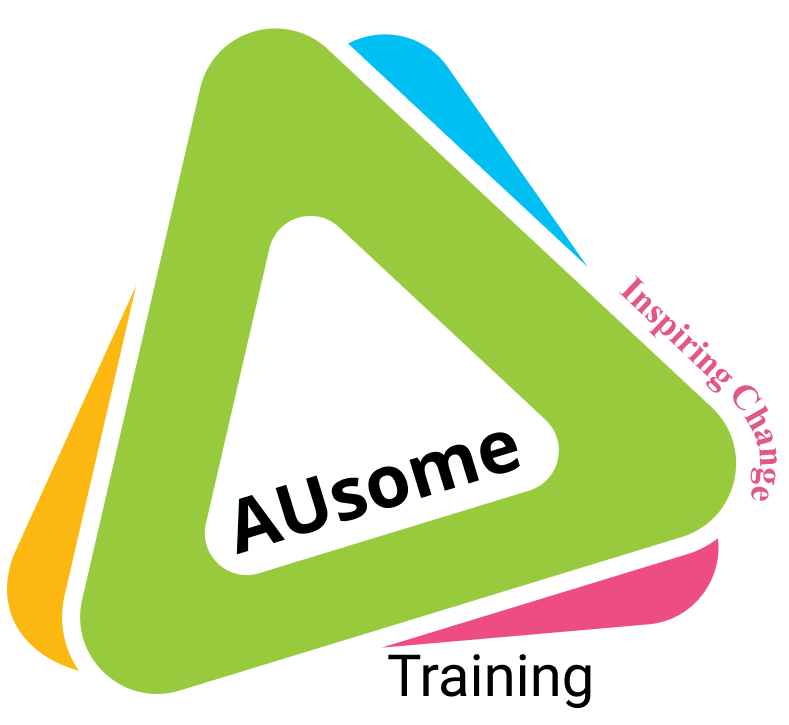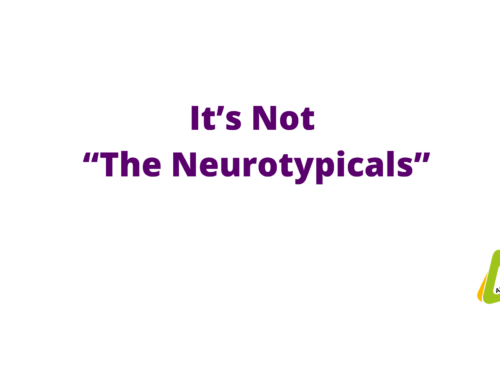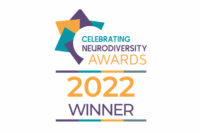Here’s a little guide to understanding autism and literal communication. Autistic people are direct communicators. We use language literally. This means that we can interpret what you say literally even if you mean it as a joke or when you use slang. It can also happen when you use approximations like if you tell a child “I’ll collect you from school” when you mean “I’ll collect you off the school bus” . That can be confusing and it can lead the child to thinking that you are going to collect them from the school instead of off the bus. Unless of course they ask for clarification or if you pick up on their confusion. So it’s also important to check in that they understand what you’ve said and to look out for signs that they may interpreted in a literal way. We also speak literally so we say what we mean. Often others don’t realise this and can judge us in same ways that non-autistic people communicate. This can mean that people assign unnecessary meaning or motivations to our words. If this happens it can be quite stressful for us. It of course does not mean that we are lacking any social skills but rather that we have a slightly different set of social skills.
Autism and literal communication
Takings things literally…
Here are few examples that we hope will help you to see things from the Autistic perspective
| Open to misinterpretation | Literal Interpretation | Instead say |
| Take a seat | Take a seat to where? | Sit on your chair |
| Bring this to the office | Bring this to the office and then what? | Bring this to the office and then come back to class |
| Don’t touch anything in this room | How can I be in here if I can’t touch the floor? | Don’t touch anything on the desks |
| Open your book on pg 37 | Open my book on pg 37 | Open your book on pg 37 and start the work on the page |
| No talking in school | No talking in school ever | No talking while teacher is talking |
| Come to the top of the room | Come to the top of the room | Come to the top of the room and write on the white board |
| I’m blue in the face | Her face isn’t blue? | I’m tired of saying the same thing |
| I’m so hungry I could eat a horse | Eating a horse would not be nice | I’m really hungry |
| Can i pick your brain? | that sounds sore and scary! | Can I ask you something? |
| Is there someone sitting here? | No one is sitting there, can’t they see that? | Can I have this chair please? |
| I’m dying to find out about your weekend | They’re dying? | I’m really interested in how your weekend went |
| I’m really interested in how your weekend went | Ok, that’s nice that they’re interested | Tell me what you did over the weekend |
Saying things literally
Autism and Literal Communication: Why do others get offended when we speak our truth?
Autistic people say what we mean. How we interact with each other is different to how non-autistic people interact with each other. We speak our truth because that’s how we interact with the world. We don’t get drawn into social hierarchies and people pleasing behaviours unless we are masking our true selves. This means that we give our opinions when asked. To us our opinions are our opinions and not a reflection of the other person. Often other people can be offended by our honesty. Like, if we are asked if we like someone’s jumper and we don’t really we might just say that we don’t like it. This isn’t because we don’t care about other people’s feelings. It’s that in our culture we see other people’s opinions as their opinions and our sense of what we like or should do is based on our own opinions and emotional responses rather than on what other people think of us. We see everyone as equal to ourselves. We see others people’s opinions as equal to our own so why would it matter if I don’t like your jumper if you like it yourself? Why would my opinion offend you if you are secure in your own decisions?
The fact is that when we scratch beneath the surface of the claim that Autistic people are often rude or blunt or offensive we see something else. This something else requires a bit of self awareness and self reflection.
Often when an Autistic person speaks their truth it can make others feel uncomfortable. Because they feel uncomfortable they project those feelings onto the Autistic person and say “you’re so rude”. But really what is happening is that our truth made them feel uncomfortable because it made them question themselves. It made them question their worldview. As humans, our worldview is important to us because it can often define our sense of self. When we have to review our world view it can mean that we are often not who we think we are or who others perceive us to be. So naturally this makes us feel uncomfortable, sometimes angry even if we have to dig deep within ourselves to understand why other people’s opinions matter so much to us. When this happens we can assign the blame to the Autistic person for being rude and making us feel this way instead of accepting what they say and reflecting on ourselves.
So if you don’t want an honest answer then it’s best not to ask an Autistic person. If you are looking for truth however then that’s what you will get in bucketloads. It’s ironic that we live in a world where we teach our children to be truthful but when they are we can’t handle it. So maybe that’s something we, as adults need to work on.
If you want an Autistic person to tell you you look good then it’s best to rephrase your question from “do you like my new jumper” to “I need some reassurance that I made the right choice with this jumper”. That way you are explicitly expressing your emotional need and not asking a question to which you may receive an answer you’re not ready to hear!
Of course many social skills courses will focus on admonishing the Autistic person for being rude, for being thoughtless or for not caring about other people’s feelings. None of these things are a true interpretation of Autistics. And they show little true appreciation for literal communication. We do in fact very much care about your feelings. We also should be encouraged to care about our own feelings and reprimanding us for just communicating in our natural way doesn’t help us to feel good about ourselves.
Further differences in communication can also play a role in literal interpretation. If we take the example used here where someone asks if we like their jumper not in isolation but also looking at the tone used we might hear that the person is feeling a little insecure or they could be excited about their new purchase. What if you hear the tone and the words but it’s confusing for you as you’re receiving two messages? So you decide to respond to the words and ignore the tone? That is what being a literal communicator means. So even though people have some awareness that Autism means literal communication they often still lack full acceptance of it when they reprimand an Autistic person for being a literal communicator. That’s how our communication works. That’s part of who we are. So not accepting this and wanting this to change is not showing acceptance.
Differences in body language can add even a further layer to the miscommunication here because an Autistic person who says what they mean will not say one thing with their words and another with their body language. When we communicate naturally like this how would we know that not everyone else does the same? So if someone says “do you like my new jumper” with their words but also has a look of expectation or excitement on their face and their body language is saying “tell me I look good” well that’s just all lost on an Autistic communicator because we will concentrate on your words because that is what being a literal communicator means. That literally is literal communication!
Of course we can learn about non-literal use of language and some of us Autistics will use it ourselves too but we may be at different stages of learning this and to some of us it will never make sense!
If you’re a professional working with Autistic kids and teens and would like to learn how to support them socially in neuro-affirming ways then find out more about Get Konnected Course.




